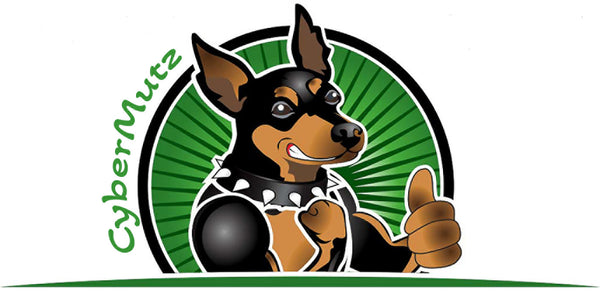
Cane Corso
Share
Overview:
• Origin: Italy, descending from ancient Roman war dogs called “Canis Pugnax.” Bred as guard dogs and hunters.
• Size: Large and muscular.
• Height: 23.5-27.5 inches (females are generally shorter than males).
• Weight: 88-110 pounds, although some males can weigh more.
• Lifespan: 9-12 years.
Appearance:
• Body: Large, athletic, and muscular, with a robust build and a strong, well-defined body.
• Head: The Cane Corso has a broad, square head with a deep muzzle. Their expression is alert and intelligent.
• Ears and Tail: Traditionally, their ears are cropped, and their tails are docked, but many modern Cane Corsos are seen with natural ears and tails depending on regional regulations and personal preferences.
• Coat: Short, dense, and slightly coarse. Their coat colors can include black, gray, fawn, red, and brindle. Some may have small white patches on their chest, toes, or chin.
• Eyes: Almond-shaped and dark, conveying intelligence and confidence.
Personality and Temperament:
• Protective and Loyal: Cane Corsos are fiercely loyal to their families and often act as natural protectors. They have strong guarding instincts and take their role as protectors seriously.
• Confident and Assertive: This breed has a strong, confident demeanor. They are assertive but should not be aggressive if properly trained and socialized.
• Intelligent and Trainable: They are highly intelligent and have a natural aptitude for obedience training, protection work, and various dog sports. However, they need a confident and experienced owner who can establish clear boundaries.
• Affectionate with Family: Cane Corsos are deeply bonded to their families. They are gentle and loving with their family members but may be reserved or wary of strangers.
Health and Care:
• Exercise Needs: High. Cane Corsos are working dogs, so they require regular exercise to stay healthy and happy. Long walks, play sessions, and activities that engage them mentally and physically are essential.
• Common Health Issues: Cane Corsos are prone to certain health problems like hip dysplasia, elbow dysplasia, bloat (gastric torsion), and heart issues. Responsible breeders screen for these conditions to maintain the breed’s health.
• Grooming: Low maintenance. Their short coat requires minimal grooming, with regular brushing to remove dead hair. They shed moderately and need basic care for ears, nails, and teeth.
Interesting Facts:
• Name Meaning: “Cane Corso” translates to “guardian dog” in Latin, highlighting their historical role as guard dogs.
• Multi-Purpose Working Dogs: In ancient times, Cane Corsos were used as war dogs, hunters of large game (like boar), and protectors of property and livestock. Today, they continue to excel in protection and as companion animals.
• Athletic Abilities: Cane Corsos are highly athletic for their size, making them agile guardians. They are skilled in protection sports and obedience work.
Temperament with Kids and Other Pets:
With proper socialization, Cane Corsos can be excellent family dogs. They are generally good with children, but due to their size and strength, interactions should be supervised to ensure safety. When introduced early, they can also live harmoniously with other pets, although some may have a higher prey drive.
Training and Socialization:
Early socialization and consistent, positive training are crucial for this breed. Cane Corsos are intelligent and willing learners, but they need clear leadership. They require an owner who can be firm yet fair and consistent in their training approach. If neglected or inadequately trained, they can become overprotective or dominant.
Exercise and Activities:
They thrive in an active household where they are given ample opportunities to exercise both their body and mind. Activities like obedience training, agility courses, and even hiking can keep them engaged. Cane Corsos appreciate having a job to do, which aligns with their working dog heritage.
Summary:
CyberMutz.com (Dog-Themed Apparel & Accessories)
“CyberMutz.com – Explore a unique collection of dog-themed apparel, accessories, and gifts for pet lovers. Shop stylish, high-quality designs featuring your favorite dog breeds!” Category Page Descriptions: Dog Breed T-Shirts: “Show off your love for dogs with our exclusive breed-themed T-shirts. From German Shepherds to Chihuahuas, find high-quality, comfortable tees celebrating your favorite pup!” Dog Breed Pet Tank Tops: “Keep your furry friend stylish and comfortable with our dog breed-themed pet tank tops. Perfect for small and large dogs, these unique designs are a must-have!” Funny Dog-Themed Apparel: “Love dogs and humor? Our funny dog-themed apparel blends style with witty canine-inspired designs. Shop now for T-shirts, hoodies, and more!” Personalized Dog Merchandise: “Customize your dog lover’s gear with our personalized pet-themed apparel and accessories. Create a one-of-a-kind look for yourself or a perfect gift for a fellow dog enthusiast!”
CyberPussyKatz.com (Cat-Themed Apparel & Accessories)
“CyberPussyKatz.com – Celebrate your love for cats with our premium collection of feline-inspired apparel and accessories. Purr-fect designs for every cat lover!” Category Page Descriptions: Cat Breed T-Shirts: “Showcase your favorite feline friend with our stylish cat breed-themed T-shirts. From Maine Coons to Siamese, find the perfect tee for cat lovers!” Funny Cat-Themed Apparel: “Express your quirky side with our funny cat-themed T-shirts, hoodies, and more. Pawsome designs for those who love cats and humor!” Personalized Cat Merchandise: “Make it personal with custom cat-themed apparel and accessories. Create a unique gift or a special piece just for you!”
CyberMunkiez.com (Monkey-Themed Apparel & Accessories)
“CyberMunkiez.com – A fun collection of monkey-inspired apparel and accessories. Perfect for primate lovers who enjoy bold, playful, and unique designs!” Category Page Descriptions: Monkey-Themed T-Shirts: “Go bananas over our monkey-themed T-shirts! Whether you love capuchins, chimps, or gorillas, our designs bring out your wild side.” Funny Primate Apparel: “Add a touch of humor to your wardrobe with our hilarious monkey and ape-inspired apparel. Great for animal lovers and jungle enthusiasts!” Custom Monkey Merchandise: “Make it yours! Personalize your favorite monkey designs on T-shirts, hoodies, and more for a one-of-a-kind look.”
